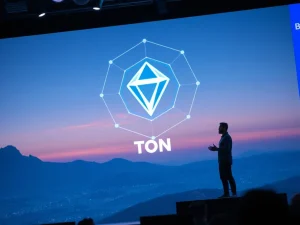Revolutionary Open-Source AI Search Destroys GPT-4o and Perplexity Performance

Is the reign of closed-source AI coming to an end? Get ready for a seismic shift in the world of artificial intelligence as Sentient, backed by Peter Thiel’s Founders Fund, unleashes its groundbreaking open-source AI search framework, Open Deep Search (ODS). This isn’t just another AI tool; it’s a defiant statement, a powerful challenger to the giants like OpenAI’s GPT-4o and Perplexity, and it’s winning.
Why is Open-Source AI Search a Game Changer?
Sentient’s co-founder, Himanshu Tyagi, puts it bluntly: “AI should belong to the community, not controlled by closed-source corporations.” This ethos is at the heart of ODS. Imagine an AI landscape where innovation is driven by collaboration, transparency, and shared ownership. That’s the promise of open-source AI search, and Sentient is delivering on it. ODS isn’t just about algorithms; it’s about empowering developers with “Loyal AI” models that stay true to their creators’ vision. This is achieved through innovative fingerprinting technology, a clever solution to protect intellectual property while keeping the model accessible and open. No more walled gardens; Sentient is building a vibrant ecosystem.
Sentient ODS vs. GPT-4o and Perplexity: The Performance Showdown
Let’s talk numbers. Sentient’s Open Deep Search isn’t just making noise; it’s backing it up with performance. On the demanding “Frames” benchmark, which tests factuality, reasoning, and the ability to answer complex, multi-layered questions, ODS achieved a stunning 75.3% accuracy. How does this stack up against the competition? GPT-4o Search Preview managed 50.5%, and Perplexity Sonar Reasoning Pro trailed behind at 44.4%. The results speak volumes. Sentient isn’t just playing in the AI arena; it’s dominating, proving that open collaboration can indeed lead to superior innovation.
| AI Search Platform | Frames Benchmark Accuracy |
|---|---|
| Sentient Open Deep Search (ODS) | 75.3% |
| OpenAI GPT-4o Search Preview | 50.5% |
| Perplexity Sonar Reasoning Pro | 44.4% |
To ensure fairness and eliminate any hint of bias, Sentient kept its researchers away from the Frames testing sets during benchmarking. Why? Because in the world of open-source AI search, transparency and verifiability are paramount. As Tyagi points out, “Anyone with a computer can run our code, reproduce our results, and verify whether it is correct or not.” This is a stark contrast to closed-source systems where independent verification often relies on trust. Sentient’s approach is about trust through transparency, a powerful advantage in a world increasingly wary of opaque algorithms.
The Massive Waitlist and the Growing Momentum
The anticipation for Sentient’s ODS was palpable. Over 1.8 million waitlist registrations poured in before the launch, signaling a massive interest in this AI search engine alternative. This groundswell of support isn’t just about a new product; it reflects a growing desire within the developer community and beyond for open, accessible, and powerful AI tools. Sentient seems to have tapped into a deep-seated need for decentralization in the AI space.
Is This a Tipping Point for Open-Source AI?
Sentient’s ODS launch arrives at a crucial moment. “We’re witnessing a significant shift as open-source AI solutions increasingly challenge closed-source dominance,” asserts Tyagi. He points to advancements from DeepSeek in reasoning and Manus in AI agents as further evidence of this trend. Sewoong Oh, Sentient’s lead researcher, echoes this sentiment: “Open-source models can easily outperform closed-source giants with the right architecture.” The benchmark results for Sentient AI‘s ODS are a powerful validation of this claim. The future of AI isn’t just intelligent; it’s increasingly open, collaborative, and community-driven.
Beyond Search: Sentient’s Vision for Open AI
Sentient’s commitment to open-source extends beyond search. Their massive NFT minting campaign earlier this year, involving over 650,000 participants, demonstrates their innovative approach to fractional ownership and community engagement in AI development. They aren’t just building an AI search engine; they are building a movement. They are fostering an ecosystem where developers can contribute, monetize their creations in an open environment, and collectively push the boundaries of what’s possible with AI.
The Future is Open: Embrace the Decentralized AI Revolution
Sentient’s Open Deep Search is more than just a technological leap; it’s a philosophical one. It’s a bold step towards democratizing AI, moving it away from the control of a few powerful corporations and into the hands of the many. By outperforming industry giants like GPT-4o and Perplexity, Sentient is not just proving the viability of open-source AI; they are demonstrating its superiority. The message is clear: the future of AI is open, and Sentient is leading the charge. Are you ready to join the decentralized AI revolution?








